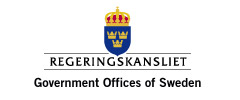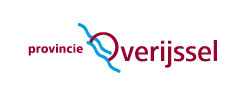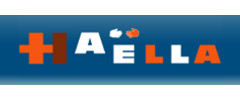Focus on vulnerable groups and small-scale water supply and sanitation at 2nd Meeting of the Parties of the Protocol on Water and Health, 23-25 November, Bucharest, Romania
The 1999 Protocol on Water and Health, under the transboundary water convention (UN-ECE), is the only legally binding instrument which ensures an integrated approach to assuring that all people have access to safe water and safe sanitation which is not detrimental to their health, and which they can afford.
15.12.2010 |Sascha Gabizon
The Protocol on Water and Health is in this respect and example for the next step of the Millennium Development Goal 7, target 10, as the protocol aims at assuring this safe and affordable access for everyone (whereas the MDG aims at a reduction of 50%). The Protocol ensures strong public participation in its implementation (an obligation for parties).
Report by the UNECE secretariat on the MOP2 of the Protocol on Water and Health:
Presentations by WECF in cooperation with the governments of Romania, Germany and Czech Republic
Assuring safe and affordable water and sanitation for all is a very complex endeavour, needing technical solutions, awareness and capacity building, different managerial options from water user unions to large water companies, a supportive legal and institutional framework, and financial resources and social support for vulnerable groups.
The Independent Expert on the Right to Water of the Human Right Council, Mrs Catherina Albequerque, considers that the Protocol on Water & Health is a good example of an instrument to implement the newly agreed United Nations Right to Water (on 28 July 2010 the UN General Assembly adopted the Resolution recognizing access to clean water and sanitation as a human right).
MAMA-86, one of WECF’s oldest member organisations, became involved in the drafting of the Protocol on Water and Health already in 1997. WECF and MAMA-86 have been actively involved in the first workprogramme of the protocol, which started following the MOP1 in January 2007. WECF member organisations AWHHE Armenia, Earth Forever Bulgaria, GEBMA, Georgia and Eco-Tiras Moldova all have become active in contributing to the implementation of the Protocol in their countries or as members of protocol committees or bodies.
WECF contributions
WECF contributed to 2 of the official documents presented in Bucharest, it contributed with case studies to the publication on small scale water supplies,
Together with the Ministry of Environment of Romania, WECF wrote the concept note on publication participation and access to information under the Protocol,
The MOP-2 of the PWH met from 23-25 of November in the Parliament Palace in Bucharest, Romania to elect a new bureau (new countries include Russia and Belgium), approve the report of the work implemented so far, approve the new work-programme and agree on financial contributions. In addition, 1 new country ratified (acceded), and was welcomed as a new party to the Protocol, Bosnia-Herzegovina. Of the 40 signatories, now more than 25 countries have ratified the PWH. The protocol can be ratified without having to first accede to its “mother” convention on transboundary waters.
WECF has been asked to be a co-implementer of 2 parts of the Protocol’s work programme 2011-2013. It is entirely innovative that for the first time in the existence of the UN system, NGO organisations have been integrated as full co-implementers of parts of the Work Programme of a UN protocol. This builds on the very positive experience in the first work programme where the government of Romania asked WECF to co-organise the work on public participation. On 18-19 of June 2010 the Romanian Ministry of Environment and WECF organised the Workshop on Information and Public Participation in Water and Health-related Issues held on 15 and 16 June 2010 in Bucharest, Romania. The results of the workshop have been summarized in the concept note (see above). This forms the basis for the continued work-programme 2011-2013 where guidelines for public participation for the PWH will be developed.
Download the powerpoint presentation and concept note here
WECF and MAMA-86 organised a side event on this topic during the MOP2, you can read the report here
WECF is a partner of the governments of Germany and Czech Republic for the cross-cutting work stream on “small-scale water supplies and small-scale sanitation”. In most countries, small scale systems account for supplies for 33% of the entire population. These supplies are often not legalized and provide low quality services. WECF will produce 3 outputs 1) a guidance document for policy makers and practitioners on small-scale sanitation (Russian, English) 2) a best practice document and manual on Water and Sanitation Safety Plans for use by schools and local authorities (Russian, English) 3) an interactive web-tool including e-learning module, targeted at authorities responsible for implementing small scale sanitation (Russian, English). WECF proposed optional modules, to pilot small-scale sanitation systems in countries where these do not yet exist, to test their cost-benefit, and the legal and institutional barriers. Download the powerpoint presentation here
Finally, WECF will contribute to the drafting of the guideline document on equitable access to water, which is lead by the government of France. The EU and the development banks all stress the need for full cost recovery of water and sanitation services, but with increasing gaps between rich and poor, guidelines are necessary how to assure that even the poor continue to have access to basic safe water and sanitation services. Even in many Western European countries, often some 15-20% of the population is not able to pay for its water services and need social support. So far, different countries and regions have found different solutions to this problem.
See WECF intervention on vulnerable groups.
Related News
Meet the Winners of the Gender Just Climate Solutions Award at COP24
On the 70th anniversary of the Universal Declaration of Human Rights, we awarded Gender Just Climate Solutions Winners at the climate negotiations in Katowice, Poland
11.12.2018
Invitation: Gender Just Climate Solutions Award 2018
10 December, COP24 Katowice
04.12.2018
Getting to the Future We Want
4-7 November, Brussels: European Environmental Bureau’s (EEB) Annual Conference
12.11.2018
GoodFood4All
WECF and partners all over Europe start GoodFood4All Campaign
06.11.2018
#Ruralwomen: join our Women2030 campaign!
15.10.2018







































